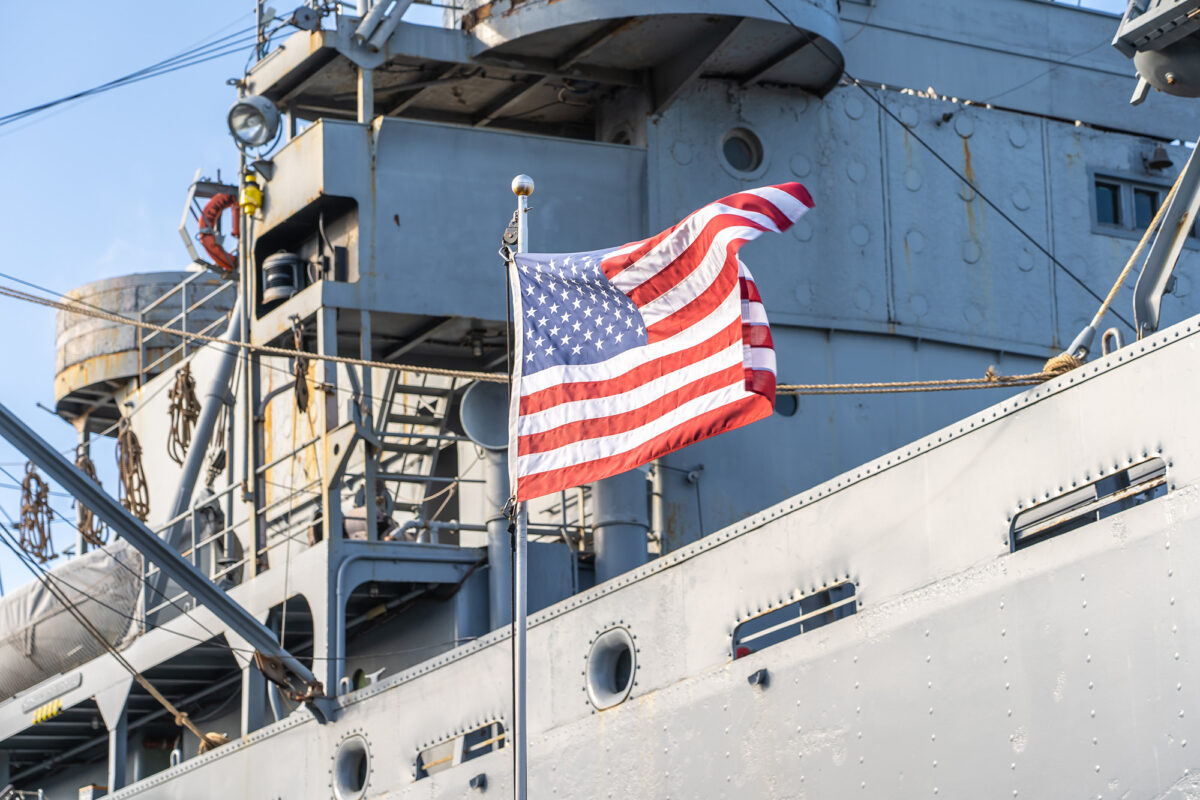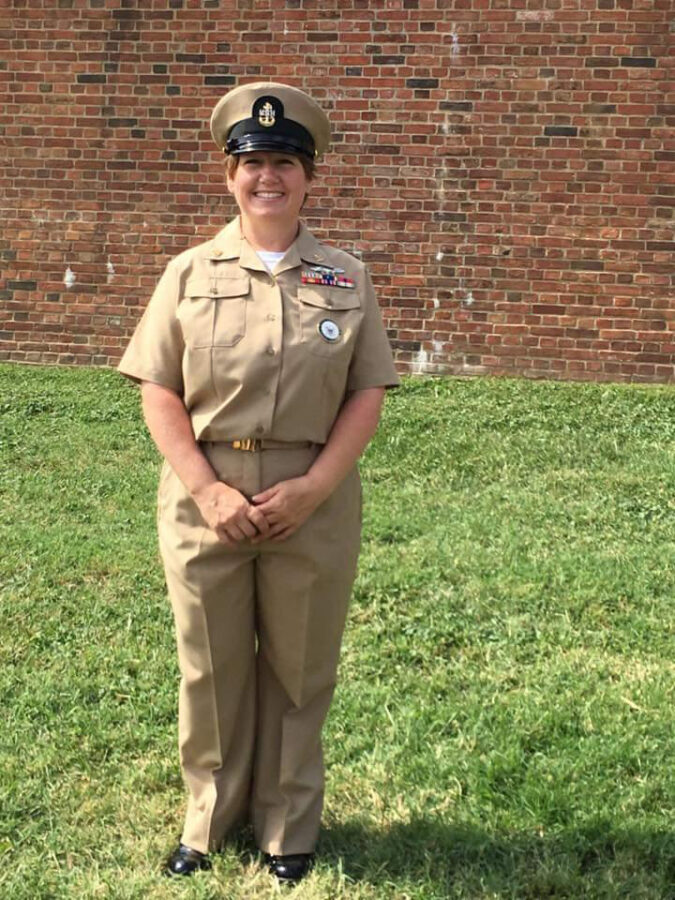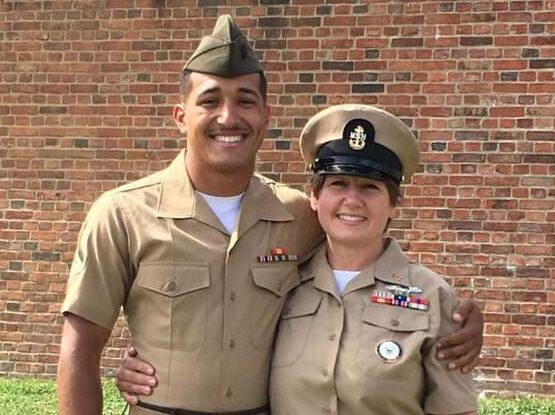
From Navy Service to Facilities Leadership: Jennifer Williams’ Career Journey
As Facilities Director at Georgetown University, Jennifer Williams stays busy managing her team, overseeing operations and ensuring our partnership continues to thrive. Jennifer has been with SSC since 2022, but before she got her start in facilities management, she held a nearly 30-year long career in the United States Navy. This career grew her into the person and leader that she is today and equipped her for success in any job she chooses to pursue.
This month, we spoke with Jennifer to learn more about her experience in the Navy, her quick dive into the facilities industry, and how organizations like our own can provide support to veterans as they transition into the civilian workforce.

A Rewarding Navy Career
Jennifer Williams joined the military in 1994 and served active duty in the United States Navy until 1996. After a two-year break, she returned to the Navy Reserves, and for the next 25 years, she worked as a reservist while also building a civilian career in training, quality, finance, and management.
Throughout her Navy service, Jennifer was stationed in Norfolk, VA and Naval Operations Center Baltimore. She served in a wide array of positions as a reservist. At the beginning of her career, she moved from administrative roles on a submarine tender and eventually to enginemen (E-3). After eight years as an Engineman, she moved into Cargo Handling Operations, coordinating the logistics of onloading and offloading Navy cargo ships.
Her final position within the Navy was active duty at the reserve center, managing career counseling, reserve services and administrative offices. Throughout her military career, Jennifer also had the opportunity to go on active duty to coordinate security, logistics and special events for two presidential inaugurations. This supported military tradition by coordinating balls and events, such as the wreath-laying ceremony at Arlington National Cemetery.
Experiencing Unique Perspectives
A long career in the military proved invaluable to Jennifer, affording her opportunities to experience different cultures and perspectives:
“The diversity that you are exposed to in the military is incredible. I grew up in the DC area, and even just going into boot camp, I met different people with unique experiences. We all grow up in a silo, thinking that everyone is the same because we’ve grown up around the same people and viewpoints, and it’s really cool to step into something where everyone is vastly different.
One of the most unique aspects of a military career is the range of ages and experience levels you are exposed to – and how quickly it teaches you to understand people and establish strong relationships.
“You have people just coming into the military at 18, and you have people getting off of active duty who are in their 30s or 40s. There are few places where you work closely with people just stepping into their first job and those in high-level management positions. Being able to interact with people of all ages, races, genders, and life experiences helped me understand people and establish relationships with others easily.”

Transitioning to the Civilian Workforce
After a long and rewarding career in the Navy, Jennifer retired in 2022. That same year, she also started a career with SSC. She didn’t just stumble upon the opportunity – her career with SSC began because of her network of fellow military members, including Michael Madrake, a fellow United States Navy member and Director of Operations at Georgetown University:
“When I first returned to the reserves, Michael trained me as an engineman. We worked together in the same unit for some time, and then we went our own ways but always stayed connected. I’ve known him for 20-something years.”
When it came time for Jennifer to transition to the civilian workforce full-time, she planned to stay in her current role – until she spoke with Michael:
“Just after I retired, I called him one day to check in, and he asked me if I was looking for a job. He told me that he had recently started with SSC and was building a team, so I decided to give it a try.”
Jennifer had never aspired to work in facilities. Like many, she entered the industry through a networking interaction and quickly discovered all the opportunities it held.
She started as a CMMS Manager at Georgetown University and worked alongside Michael to learn everything she needed to know about education facilities management. Since starting with SSC in August 2022, she has been promoted from CMMS Manager to Assistant Director and now holds the position of Facilities Director.
Attracting & Retaining Veterans
Jennifer’s transition to the civilian workforce was easier because she had already been a part of it. For many veterans, however, it isn’t always a smooth transition. One significant obstacle many veterans face comes as early as the job search: translating military terminology, experiences, and titles into a resume.
“With the military, your language, the abbreviations, and all of the unique positions don’t necessarily transfer over to the civilian world quickly. When you’re writing a resume, you have to consider things like how being in the artillery on a battlefield equates to a civilian position, which makes writing experience in a resume somewhat difficult.”

There are crosswalk tools available to both veterans and employers, which help to correlate military careers with civilian jobs that use similar skills. Other tools provide language for veterans to use when writing resumes, helping them leverage their experience in a way potential civilian employers will understand.
One way employers can go above and beyond in helping prospective employees transition into the civilian workforce is by having veterans on their hiring team who are ready and able to review resumes and assist recruiters with making educated hiring decisions.
“If I see someone who submits a resume and is a veteran, my instinct is to remember that they are used to being on time, being held accountable, and meeting high expectations. I understand what they have been through, and being a military member, it’s easier for me to ask questions and learn more about them because I know what they are talking about when they reference their military career, whereas someone else in recruiting who hasn’t been in the military may not.”
Other ways that employers can attract veterans to open positions include:
- Draft veteran-friendly job descriptions that are competency-based
- Ensure job descriptions explain responsibilities in detail
- List out familiar skills that would help veterans translate their experiences into the open role

Jennifer and Her Son Calvin
Jennifer’s experience in the military has shaped her into the person she is today. Serving our country runs in her family – her grandfather was in the Army, and her son is a Marine – and looking back, she wouldn’t change a thing:
“I wouldn’t trade it for the world. I encourage anybody and everybody to join the military – even if just for a short period of time. Service is important – to our country, to our values. You can establish a work ethic in the military that will translate to any job you attain in the future.”
For additional stories about our incredible SSC teams, browse the content in our news center and follow us on LinkedIn, Facebook, and Instagram.